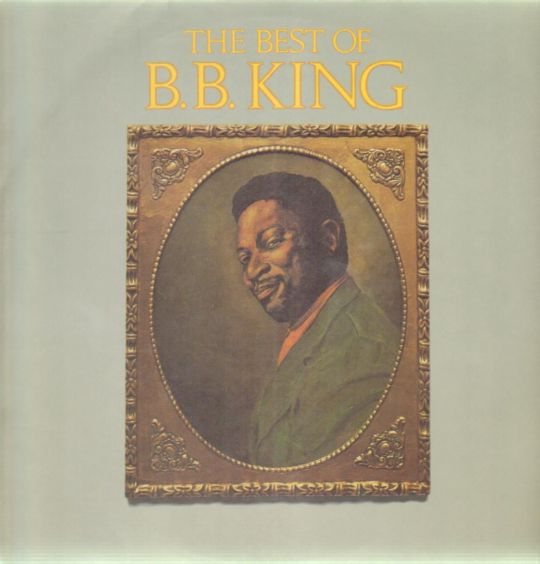#we’re probably gonna have to deal w like a bb solo or something from him unless he’s jumping ship to marvel again 😔
Explore tagged Tumblr posts
Text

#truly not shocked the sales were going down even his fans were calling it boring/mid + all the discourse#I truly do not think he expected + I honestly think he didn’t want nw in the first place 😭#we’re probably gonna have to deal w like a bb solo or something from him unless he’s jumping ship to marvel again 😔#anti tom taylor#dick grayson
223 notes
·
View notes
Photo

BB King
The Best Of BB King (ABC Label)
@ 1973 US Pressing
****
In spite of 1972 being one of the stalest years in the history of popular music, the spate of reissues from all the major record companies and countless minor ones picks up more speed all the time, and the results (uneven as they are) are generally encouraging. All four of these albums represent attempts both at recapitulating the contributions of three black titans and cashing in on the belated widespread recognition of those contributions. Curtis Mayfield had a long string of hits with the Impressions but it took Super Fly to make him a household name. Ray Charles may have been bigger in the late Fifties and early Sixties than he is now, but he was more vital then, too. His earlier work deserves the endless repackaging. As for B.B. King, I can still remember the first time I saw a couple of kids in a department store line, audibly opting to chance $3.50 on an album called Lucille because some Limey speedfreaks had made it hip, and I’m sure that both they and I are glad they did, but B.B. King’s career didn’t begin when the royalties began pouring in from flash guitar covers and he was invited to tour with the Rolling Stones, so a thoughtful collection of vintage King is imperative.
Ray Charles doesn’t have as many hits these days as he used to, but he’s more renowned than ever before anyway. He’s become something of a national institution, like the Duke Ellington of R&B; even Pres Nixon has made an official declaration of Charles fandom. But the Pres ain’t exactly the type to do back-flips for “What’d I Say” or “The Right Time,” and Ray’s been hacking his way ever deeper into the tissue veldts of MOR for a full decade now. He still makes a good record every once in a while, but in his prime he was raunchy enough to split your skull and rock you into fundamentalist frothing fits. He created rock ‘n’ roll as much as Berry or Little Richard or anybody; he practically drew up the blue-prints for an entire era of gritty Stax R&B, and nobody ever wrenched their way deeper into the soaring terror of the blues. If you want to hear him really rip the joint apart and put it back together again with a cry, go back to those great Atlantic sides. The essence is on three albums: The Genius of Ray Charles. The Genius Sings the Blues and The Greatest Ray Charles. Or, for a fantastic overview, Atlantic’s four-record compilation The Ray Charles Story. Ray’s move from Atlantic to ABC made him rich and, initially at least, the musical rewards were probably as bountiful as ever and an idiomatic breakthrough besides. In search of a buck-grabbing formula, ABC sent him through albums like The Genius Hits the Road (“Georgia on My Mind,” “Mississippi Mud,” “Carry Me Back to Old Virginny” etc.), and miraculously he came up with brilliant, deeply soulful amalgams of gospel roots and mainstream pop. But the real turning point was a record called Modern Sounds in Country & Western Music, which was released about 12 years ago, at which time it promptly became the Number One album in America and changed the face of the milder strains of radio pop as irrevocably as his early work had done for rock ‘n’ roll. All through the Sixties the marriage of C&W to blues or bluesy euphemisms reigned, and whether you picked up on Glenn Campbell or Lee Hazelwood or any one of the rest of the multitude exploiting this new form, it all began with Ray Charles.
Ray himself exploited his innovation till the power of the original purveyor began to pale, and not everything on All-Time Great Country & Western Hits is great. But enough of the prime is here to make it worthwhile, especially if you haven’t picked up any of the many previous Charles reissues. “I Can’t Stop Loving You” was his first big move at this amalgam, and it’s still as tearfully puissant today as it was in 1961. Add the occasional C&W standard rendered in R&B style fully as uncompromising as any early Charles (the boiling “You Are My Sunshine” being the earliest and most potent example here), and you have a record as profound and essential as anything out today.
Lots of people think the Super Fly soundtrack the best soul album of 1972, but those unfamiliar with the Impressions owe it to themselves to discover what Curtis Mayfield was up to in the times before the most vital expression of black music was almost forced to deal with heroin death. “Freddie’s Dead” is already a Seventies standard, and His Early Years with the Impressions is a fine reminder that Mayfield possessed a consistent gift for creating hits destined to become classics all through his career. The vocal harmonies of the Impressions could be as mellow a balm as anything by Smokey Robinson and, like Robinson, Mayfield was never saccharine.
In fact, this late rehearsing of his past achievements impresses you firmly, even if you missed it first time around, with the fact that Mayfield was a groundbreaker in the nascent status of black popular music as a direct expression of the changes in black consciousness. When “Keep On Pushing” was a hit it was fairly easy to find shadings of meaning in its lyrics which formed as clear a link between the oldest gospel message and something far more topical, as it was to revel in the perfect evolutionary link between the purely musical freight carried out of church and the AM soul stylings which reached their summit in the mid-Sixties.
“It’s All Right” illuminates the same historic junction, and “We’re A Winner” takes it out of the realm of ambiguity, straight across the threshold of blatant backbeat radio anthem. Meanwhile, if you’re only familiar with things like “Gypsy Woman” in the eviscerated cover versions of white fluff-boys, get ready to be moved to the shoals of your soul by a whole other, more masterful and authentic type of vocal dramatics.
Again, the packaging is pretty bland, and another caveat is that lots of this stuff has been observed in the original albums selling for far less in bargain bins around the country (plus the fact that lots of those original packages were a joy in their very crassness, like that great Keep On Pushing cover observed among Dylan’s most conspicuously prized possessions on the Bringin’ It All Back Home jacket). But if Super Fly was your introduction to Curtis, you’ll want to make a point of picking this up before his pre-soundtrack solo albums, which qualitatively fall way below both what preceded and followed them.
B.B. King has in his belated flush of success become almost as frustrating for the aficionado of the Real Shit as Ray Charles. B.B. plays Vegas now, no fault there, and hits both the colleges and TV talk shows. So he’s finally out of the scuffle, at late long last. Unfortunately, his music has also gotten less interesting with each successive album. Vintage King wasn’t just something for punks to prove they could tell a good blues guitar solo from a bad one; it was stark, evil stuff. Troubled and troubling.
The difference between these two B.B. albums is the difference between chills and chips, between hearing a raw edge that makes Back in the Alley more than just a good colorful title, and satisfying your curiosity about how B.B. King would work in the context of a standard Leon Russell Hollywood camp meeting. And it’s not just a matter of backalleys vs. proximity to pop-stars: There is just no way a cut from the legendary Live at the Regal album, which molded countless Sixties guitarists and stands alongside things like James Brown at the Apollo as one of the all-time classic in-person R&B disks, there is no way something like that is not gonna shut down a pleasantly perfunctory session cut at Cook County Jail two or three years after Johnny Cash made it both righteously hip and fiscally sound to jam for jailbirds.
Actually, the chronological distance between the two albums is not all that great. Back in the Alley begins in 1964 and leaves off just short of where The Best of B.B. King picks up, but the difference in mood and meat is sufficient to make the choice clear, even if Best Of does have the incredible “The Thrill Is Gone.” It’s the fine line between a man playing with total commitment to an audience he has probably had for years which can savor his peaks and bear an off night, and a man playing for people who’ve been sold his legend and will love anything because they know they’re supposed to. But you don’t have to be any kind of connoisseur to tell the difference.
Rolling Stone 1973
4 notes
·
View notes